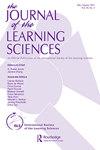在创客运动中重新定义企业家精神:一种批判性的青年方法
IF 3
1区 教育学
Q1 EDUCATION & EDUCATIONAL RESEARCH
引用次数: 9
摘要
背景:本文探讨创客运动中创业与创新话语的传统迭代与新挑战。方法:通过对12名青年创客进行为期一年的批判性民族志研究,我们调查了青年如何通过他们作为正义导向的社区创客的身份工作来参与和重新定义创业精神。研究结果:通过考察青年参与区域青年创业博览会的经验,我们发现,在该博览会上,主导的制造文化和创业精神为公平参与其中提供了有限的机会。然而,青年创客以社区正义为导向的努力破坏了青年、成年人、stem制作和社会之间的权力关系。他们批判青年的方法为企业家精神/企业家精神提出了新的愿景。青年通过以下几个方面的实践,重新配置了关键的创客创业精神:1)重新人性化的制作;2)建立社区。他们的公开演讲强调了这种努力可以为社区正义和社区福祉带来什么。他们的批判性重构行动揭示并挑战了由固有的白人、男性、中产阶级偏见和新自由主义驱动的不公平价值观和做法。贡献:青年的努力要求重新设想和重新认识什么是参与、专业知识和在制造和创业方面的成功。我们讨论了对社会更公正的企业家精神的影响。本文章由计算机程序翻译,如有差异,请以英文原文为准。
Redefining entrepreneurialism in the maker movement: A critical youth approach
ABSTRACT Background: This paper explores traditional iterations of, and new challenges to, the tightly linked discourses of entrepreneurship and innovation within the maker movement. Methods: In a yearlong critical ethnographic study with 12 youth makers, we investigated how youth engaged with and redefined entrepreneurialism through their identity work as justice-oriented, community makers. Findings: Examining youth experiences of entering their making designs into a regional youth Entrepreneurial Faire, we found that the dominant cultures of making and entrepreneurialism at the Faire presented limited opportunities for equitable participation in either. However, youth makers’ community justice-oriented efforts disrupted relationships of power among youth, adults, STEM-rich making, and society. Their critical youth approach argued for a new vision for entrepreneurialism/entrepreneurship. Youth reconfigured a critical maker-entrepreneurialism through practices multidimensionally grounded in a) re-humanizing making and b) building community. Their public discourses highlighted what this effort could produce for community justice and community well-being. Their critical reconfiguration actions revealed and challenged inequitable values and practices driven by inherent White, male, middle-class bias and neoliberalism. Contribution: Youth efforts call for a re-imagination and new recognition of what counts as participation, expertise, and success in both making and entrepreneurialism. We discuss implications for a more socially just entrepreneurialism.
求助全文
通过发布文献求助,成功后即可免费获取论文全文。
去求助
来源期刊

Journal of the Learning Sciences
Multiple-
CiteScore
10.70
自引率
5.30%
发文量
17
期刊介绍:
Journal of the Learning Sciences (JLS) is one of the two official journals of the International Society of the Learning Sciences ( www.isls.org). JLS provides a multidisciplinary forum for research on education and learning that informs theories of how people learn and the design of learning environments. It publishes research that elucidates processes of learning, and the ways in which technologies, instructional practices, and learning environments can be designed to support learning in different contexts. JLS articles draw on theoretical frameworks from such diverse fields as cognitive science, sociocultural theory, educational psychology, computer science, and anthropology. Submissions are not limited to any particular research method, but must be based on rigorous analyses that present new insights into how people learn and/or how learning can be supported and enhanced. Successful submissions should position their argument within extant literature in the learning sciences. They should reflect the core practices and foci that have defined the learning sciences as a field: privileging design in methodology and pedagogy; emphasizing interdisciplinarity and methodological innovation; grounding research in real-world contexts; answering questions about learning process and mechanism, alongside outcomes; pursuing technological and pedagogical innovation; and maintaining a strong connection between research and practice.
 求助内容:
求助内容: 应助结果提醒方式:
应助结果提醒方式:


